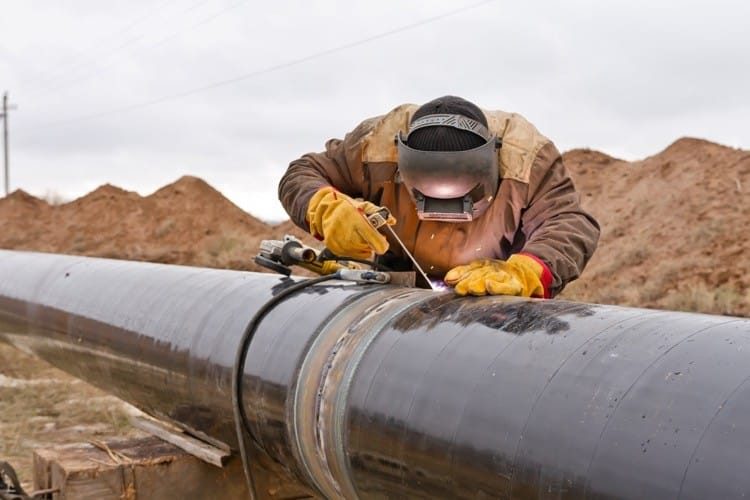
Several news sources are reporting that Joe Biden will use an executive order to cancel the permits granted to the Keystone XL pipeline on his first day in office as the nation’s 46th president. If true, this act would be a powerful demonstration that elections have consequences, as President Donald Trump was a huge advocate of the pipeline — a project that has faced both political and legal opposition for its entire existence.
The Keystone XL pipeline is one part of a pipeline system running through Canada and the United States, commissioned in 2010 and owned by TC Energy and the government of the Canadian province of Alberta. It begins in the Western Canadian Sedimentary Basin in Alberta and proceeds to refineries in Illinois and Texas. It also runs through a distribution center in Cushing, Oklahoma. The pipeline was approved by the Canadian National Energy Board in 2010 to run almost 1,200 miles from Alberta to Nebraska, with expectations that 800,000 barrels of oil would run through it each day.
That Biden would cancel pipeline should come as no surprise. Biden is planning on cancelling many of Trump’s executive actions. For example, Biden has announced that he plans to rejoin the Paris Climate Accord and order a 100-day mask-wearing mandate. When Biden was vice president during the tenure of President Barack Obama, that administration argued against the pipeline, mostly on environmental grounds.
It might be recalled that during the second debate with Trump, Biden vowed to phase out the oil and gas industry in the United States, arguing that such an action was necessary to mitigate global “climate change.” After encountering much opposition, especially in swing states such as Pennsylvania where oil and gas is a critical part of the economy, Biden vacillated, claiming he was not going to take such drastic action until supposedly more environmentally friendly energy sources such as wind and solar are more practical.
But it is now quite obvious that Biden is going to undermine the oil and gas industry, either because he is bowing to pressure from environmentalists or because he shares their radical agenda. While many have expressed concern that such undermining of the oil and gas industry will do great damage in the oil states, the truth is that it will devastate the entire U.S. economy. There is simply no substitute readily available to oil and gas — except for nuclear energy, which the environmentalists also oppose. Wind and solar have simply not advanced technologically far enough to make up the difference that would occur if the oil and gas industry were abolished, if such a technological advance is even possible.
Canada’s ambassador to the United States, Kirsten Hillman, expressed hope that the United States would continue the Keystone XL project, but was careful to mouth politically correct words. “There is no better partner for the U.S. on climate action than Canada as we work together for green transition,” Hillman said.
Jason Kenney, the premier of Alberta, was much stronger in his denunciation of the cancellation plans in a response on Twitter, arguing that it would cost jobs, damage relations between Canada and the United States, and undermine national security, as cancellation would make the United States more dependent on oil from OPEC.
To be fair, there are legitimate issues with the pipeline. TransCanada attempted to invoke eminent domain against some recalcitrant Nebraska landowners, even before the project had obtained federal approval. Texas landowner David Daniel claimed that TransCanada illegally seized his land, using eminent domain, arguing it was a public utility rather than a private company.
Exactly how many jobs would be created by the pipeline has also been in dispute. While TransCanada claimed that the Keystone project would create 20,000 jobs, not surprisingly, Greenpeace, a radical environmentalist organization, challenged that figure. Then-President Barack Obama argued in 2013, “The most realistic estimates are this might create maybe 2,000 jobs during the construction of the pipeline, which might take a year or two, and then after that we’re talking about somewhere between 50 and 100 jobs in an economy of 150 million working people.”
Even the Associated Press questioned Obama’s pessimistic prediction, noting that Obama did not provide any evidence for his lower figure assertion. Actually, the U.S. State Department’s Preliminary Supplemental Environmental Impact Statement, issued shortly before Obama’s unrealistically low estimate, provided a much more optimistic prediction of 42,000 direct and indirect jobs during construction, and almost 4,000 direct jobs.
Elections have consequences. Rather than worry about such relatively unimportant issues as Trump’s supposedly unpresidential temperament, more American voters should have worried about the actual negative impact that Joe Biden’s policies will have on their daily lives. This worshiping at the shrine of global-warming alarmism that Obama and Biden have done, along with many more politicians, activists, and the like, is going to have real-life consequences for America.
Instead of Making America Great Again, Biden’s anti-growth policies are likely to Make America Dependent Upon Foreign Oil Again.



